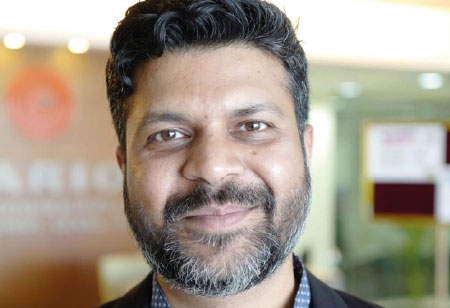Flawless Execution, Not Great Ideas Drives Success
By Ankur Agarwal, Member, Entrepreneurs' Organization, Pune

Ankur Agarwal, Member, Entrepreneurs' Organization, Pune
Strategy and Innovation are glamorized words in business today. We believe that leaders who aren’t “strategizing” or “innovating”, aren’t doing anything constructive. However, I disagree. I believe that unless all those great ideas are executed well, they are useless. This is also true of organizational plans. Stats suggest that organizations execute only 10-15% of their strategies. Imagine the loss of revenue, profits and market share! So how can managers, and entrepreneurs execute better?
For long, I used to regard execution as “details” and beneath my dignity as CEO. I believed that these details must be delegated, while I focused on the "bigger" issues. I thought that as a leader my role was to stand on the mountaintop, thinking strategically and inspiring my people with visions, while managers did the grunt work. But, over the years, it became apparent to me that this could never work. Execution requires a comprehensive understanding of a business, its people, and its environment. As CEO, I am the only person in the position to achieve all that. Clearly, as the leader, I must be deeply engaged and can't delegate the substance of execution. I realized it was MY primary job to get things done. In fact, this was my most important job!
I draw inspiration from Ram Charan, the great business coach, writer and an alumnus of my alma mater, the Indian Institute of Technology (BHU) Varanasi. Hehas said – “The leader must put in place a culture and processes for executing, promoting people who get things done, and rewarding them appropriately.”
Who will do the job, and how will they be judged and held accountable? The leader assigns tasks and then follows up. I adopted an approach built around asking, understanding, and following up, linking my people, the strategy, and plans together. This means ensuring that people understand priorities and asking incisive questions to drive that understanding. The failure to follow through is a major cause of poor execution. Every leader who's good at executing follows through religiously. This ensures that people are doing the things they committed to do, according to the agreed timetable.
Let me share something we have done even at the highest levels in our businesses. In our monthly meetings with advisors and our management team, we review the operating plan of each department. We review performance for each month and compare with the commitments made. People who fall short must explain why, and what they will do about it. We bring out the positive and negative. The meetings are often uncomfortable for those in the negative column. If somebody's results are substantially short, we talk separately, raising a series of questions and suggestions about the actions the executive plans to take to get back on track. These are not sessions to berate people. While positive and constructive, just the fact the discussions happen drives the executives to retain their focus on what must be done.
I strongly feel that leaders must focus on making their companies excellent at execution. I recommend focusing on creating an execution mentality in your organization – that could be your greatest contribution to the success of your business.




